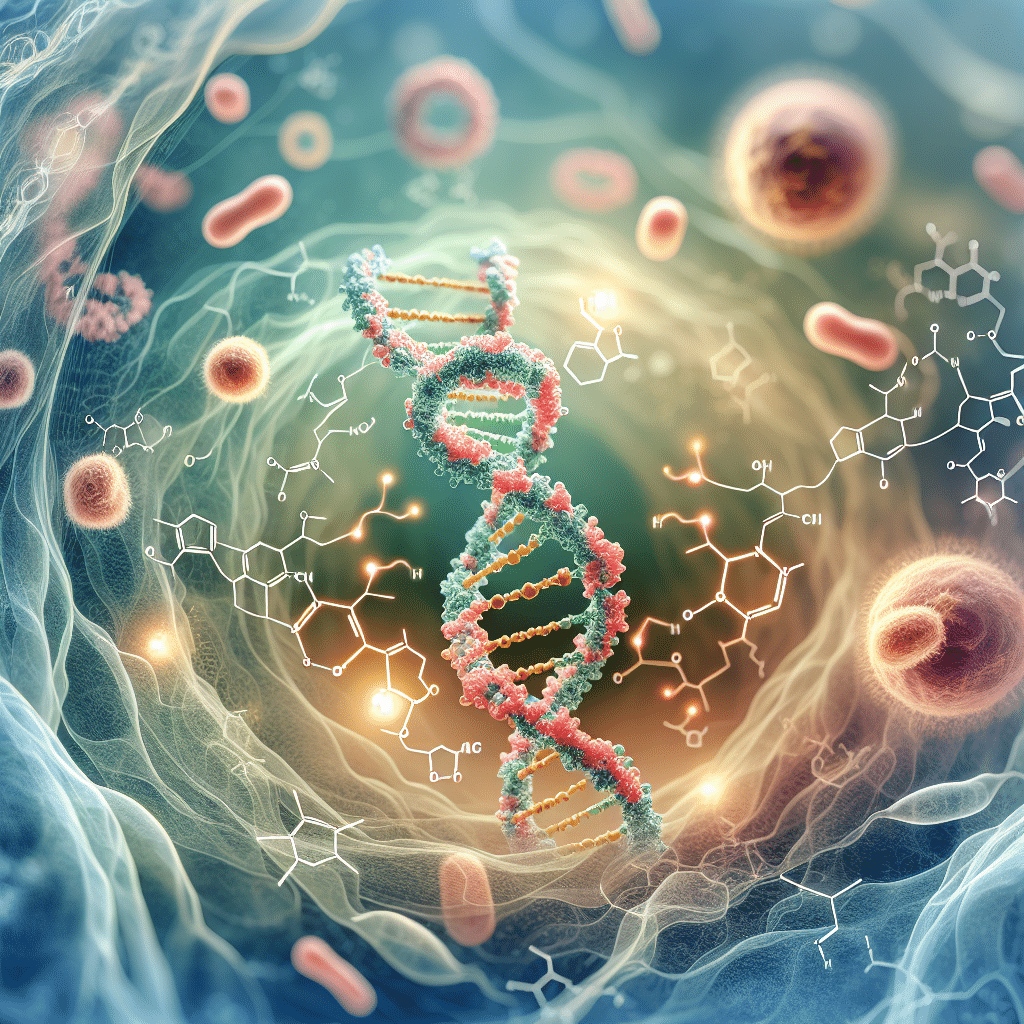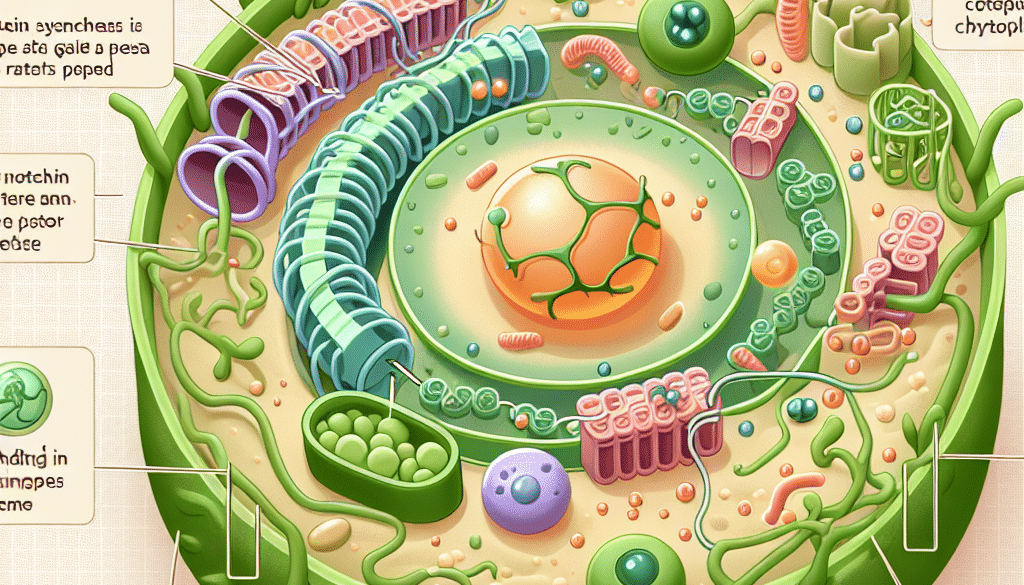Pea Transit Peptide: Function and Role
-
Table of Contents
Pea Transit Peptide: Function and Role

Pea transit peptide is a crucial component in the process of protein targeting and localization within plant cells. It plays a significant role in facilitating the transport of proteins from their site of synthesis to their final destination within the cell. This article will explore the function and role of pea transit peptide, its importance in plant biology, and its potential applications in various industries.
What is Pea Transit Peptide?
Pea transit peptide, also known as chloroplast transit peptide or plastid transit peptide, is a short amino acid sequence that acts as a signal for protein targeting to specific organelles within plant cells, such as chloroplasts, mitochondria, and peroxisomes. It is typically located at the N-terminus of a protein and is responsible for guiding the protein to its correct subcellular location.
Function of Pea Transit Peptide
The primary function of pea transit peptide is to facilitate the transport of proteins across the membranes of organelles within plant cells. It acts as a recognition signal for the protein import machinery, allowing the protein to be recognized and transported to its appropriate destination. The transit peptide is cleaved off from the protein once it reaches its target organelle, allowing the protein to function properly.
Pea transit peptide plays a crucial role in the biogenesis of chloroplasts, which are responsible for photosynthesis in plants. It guides proteins synthesized in the cytosol to the chloroplasts, where they are involved in various essential processes, including photosynthetic reactions, carbon fixation, and the synthesis of important metabolites.
Importance in Plant Biology
The proper targeting and localization of proteins within plant cells are essential for the normal functioning of various cellular processes. Pea transit peptide ensures that proteins are delivered to the correct organelles, allowing them to carry out their specific functions. Without the presence of transit peptides, proteins would be mislocalized, leading to impaired cellular processes and potentially detrimental effects on plant growth and development.
Pea transit peptide is particularly important in the context of chloroplasts, as these organelles are responsible for the production of energy-rich molecules through photosynthesis. The precise targeting of proteins to chloroplasts ensures the efficient functioning of photosynthetic machinery, which is crucial for plant survival and growth.
Applications in Various Industries
The understanding of pea transit peptide and its role in protein targeting has led to its potential applications in various industries. Here are a few examples:
Agriculture
Pea transit peptide can be utilized in the development of genetically modified crops with improved traits. By incorporating transit peptides into target proteins, researchers can enhance the efficiency of protein targeting to specific organelles, such as chloroplasts. This can lead to increased crop productivity, improved nutrient utilization, and enhanced stress tolerance.
Biotechnology
Pea transit peptide can be used in the production of recombinant proteins in plant-based expression systems. By fusing the transit peptide to the target protein, researchers can ensure its proper targeting and localization within plant cells, resulting in higher yields of the desired protein. This has significant implications for the production of pharmaceuticals, industrial enzymes, and other valuable proteins.
Pharmaceuticals
Pea transit peptide can be employed in the delivery of therapeutic proteins and peptides to specific organelles within cells. By attaching the transit peptide to the therapeutic molecule, researchers can enhance its targeting to the desired organelle, improving its efficacy and reducing potential side effects. This approach holds promise for the development of targeted drug delivery systems.
Conclusion
Pea transit peptide plays a crucial role in protein targeting and localization within plant cells. Its function in guiding proteins to specific organelles, such as chloroplasts, is essential for the proper functioning of cellular processes. The understanding of pea transit peptide has opened up new possibilities in agriculture, biotechnology, and pharmaceutical industries, offering opportunities for improved crop traits, enhanced protein production, and targeted drug delivery systems.
About ETprotein
ETprotein, a reputable protein Chinese factory manufacturer and supplier, is renowned for producing, stocking, exporting, and delivering the highest quality organic bulk vegan protein and plant proteins. They include Organic rice protein, clear rice protein, pea protein, clear pea protein, pumpkin seed protein, sunflower seed protein, mung bean protein, etc. Our offerings, characterized by a neutral taste, non-GMO, allergen-free attributes, cater to a diverse range of industries. We serve nutraceutical, pharmaceutical, cosmeceutical, veterinary, as well as food and beverage finished product distributors, traders, and manufacturers across Europe, USA, Canada, Australia, Thailand, Japan, Korea, Brazil, and Chile, among others.
Our specialization includes exporting and delivering tailor-made protein powder and finished nutritional supplements. Our extensive product range covers sectors like Food and Beverage, Sports Nutrition, Weight Management, Dietary Supplements, Health and Wellness Products, and Infant Formula, ensuring comprehensive solutions to meet all your protein needs.
As a trusted company by leading global food and beverage brands and Fortune 500 companies, ETprotein reinforces China’s reputation in the global arena. For more information or to sample our products, please contact us and email sales(at)ETprotein.com today.












